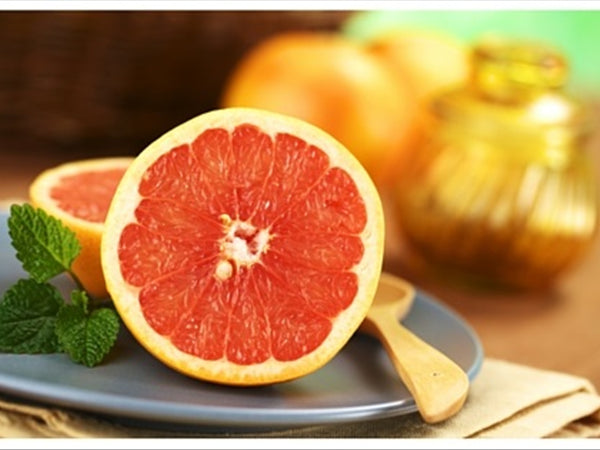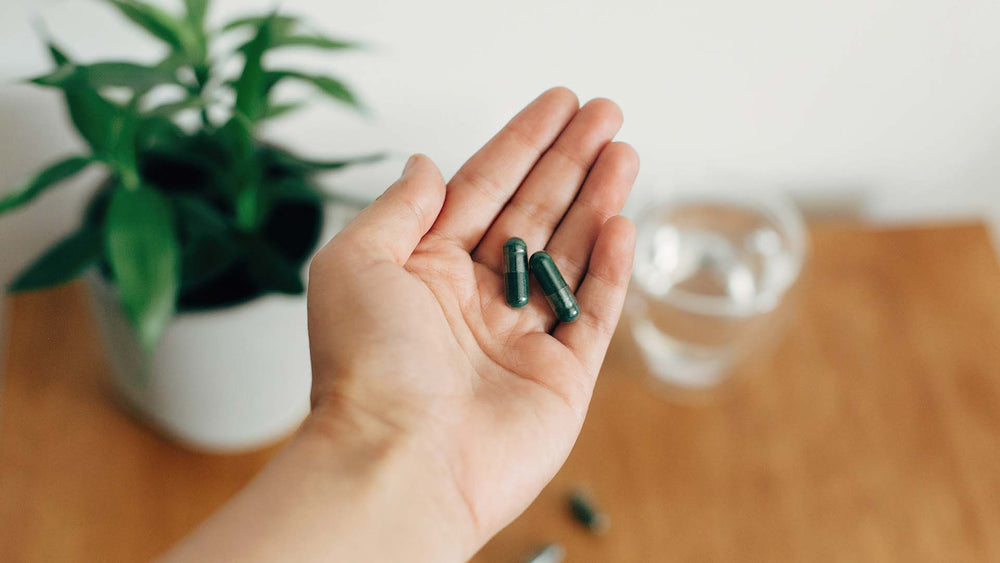Asthma rates have skyrocketed worldwide since the 1980s. According to the Centers for Disease Control (CDC), 17.7 million adults and 6.3 million children in the U.S. suffered from asthma in 2014. Researchers offer several theories for the rise in asthma. Increased obesity, a sedentary lifestyle, and environmental or genetic factors may play a part in causing and aggravating asthma. What you eat can affect the severity and frequency of asthma attacks. Peanuts, cow’s milk, wheat and eggs are most commonly linked to allergic asthma. Non-allergic asthma attacks are triggered by smoking, air pollution, stress, hay fever or exercise.

What Happens During an Asthma Attack?
When air passageways are blocked by mucus or smooth muscle cells, it makes breathing difficult, and causes wheezing. The attack is usually stopped by using an asthma inhaler, EpiPen® auto-injector, or other medication or medical device. If not treated immediately, a severe asthma attack may result in suffocation or even death.
Diet, weight maintenance and exercise play an important part in reducing the number and severity of asthma attacks. Weight loss reduces the severity of asthma attacks and may alleviate them completely in some people. A study published in the June 2012 Journal of Asthma and Allergy concluded that obese, asthmatic adults who lost weight showed reduced instances of asthma attacks.
If you have asthma, your doctor will prescribe an asthma inhaler or one of several common medications. Asthma medications have many side effects, including headaches, nausea, dizziness and fast or uneven heartbeats. Instead of relying solely on asthma medication to relieve attacks, eat a healthier diet. Many foods contain magnesium, potassium, Vitamin B6, Omega 3 fatty acids and other nutrients proven to reduce asthma attacks. Eating healthy foods leads to weight loss, another key factor in reducing asthma.
Feel better by following these 10 eating tips for asthma sufferers.

Eat Foods High in Vitamin C and Vitamin A
Eat fruits and vegetables rich in Vitamin C. The antioxidants in broccoli, apples, strawberries and other Vitamin C filled foods banish harmful molecule called free radicals. Vitamin C helps prevent the smooth muscles in your lung’s passageways from contracting, making you breathe easier.
You may have heard the term “anti-histamine” to describe ingredients in over-the-counter asthma or cold medications. The chemical histamine constricts smooth muscles in air passageways, and eating foods high in Vitamin C reduces the amount of histamine in the body.
A study conducted by Nottingham University in England indicated low intake of vitamin C and Vitamin A increased likelihood of asthma attacks. The University of Maryland cites a study that indicates asthmatic children who ate a diet rich in Vitamin C had less wheezing than children who consumed small amounts of the vitamin. Other studies claim one gram of Vitamin C a day will keep airways open.

Reduce Milk and Dairy Consumption
Milk, eggs and other dairy products are important for their calcium, protein and Vitamin D content. Unfortunately, dairy foods cause allergic reactions in many people, resulting in coughing, wheezing and other asthmatic symptoms.
Studies conducted on the effects of milk on asthma show varied results. In a 2007 study published in Clinical and Experimental Allergy, results showed children who drank raw farm milk were less likely to develop asthma or allergies than children who drank store-bought, processed milk. Raw milk may contain pathogens not found in processed milk, so there are health dangers associated with farm milk consumption for both children and adults.
If you’re allergic to cow’s milk or eggs, try rice, soy, almond or coconut milk. Many new milk substitutes are available in health food stores or large supermarkets, including oat milk or sunflower milk.

Eat Foods Rich in Magnesium
Magnesium deficiency is common in the U.S., with about 75% of Americans consuming less than the recommended daily amount of this important mineral. Asthmatics often have low levels of magnesium, and studies show magnesium therapy is helpful in treating serious asthma. It’s used intravenously to treat patients suffering from life-threatening asthma attacks due to its ability to control wheezing and open up blocked airways.
Dark chocolate, yogurt, bananas, sunflower seeds, beans, lentils and spinach are high in magnesium, so you won’t have to look far to get the RDA (420 mgs for an adult male, or 320 mg for an adult female) of this mineral in your diet. Add magnesium-rich foods to your meals with of these tasty recipes. http://www.rodalesorganiclife.com/food/foods-high-magnesium
You may also want to supplement your diet with wheatgrass tablets if you don’t get enough magnesium from food. Chlorophyll, the main component of wheatgrass, is high in magnesium.

Don’t Consume Hot Dogs or Other Foods Containing Sulfites
Traditional hot dogs and all the customary toppings– sauerkraut, relish and peppers-may contain asthma-triggering preservatives called sulfites. Replace this fast-food staple with healthier alternatives like veggieburgers or vegan hot dogs. Sulfites may be used to preserve deli meats, particularly pre-packaged ones you buy in the supermarket freezer section. Sausage, beef jerky and frozen shrimp are often preserved with sulfites. While allergies or breathing problems caused by untreated red meat are rare, asthma sufferers should limit meat consumption. Instead, eat meals based around Omega-3 rich fish (salmon, cod, etc.) fruits, vegetables and grains. French fries, whether they’re frozen or part of a fast-food meal, probably contain sulfites. If you want to treat yourself to French fries without triggering asthma, make them at home with fresh potatoes and serve salt-free.

Eat Homemade or Fresh Food
Processed food, fast food and junk food do more than pack on the pounds, they can also make your asthma worse. Any packaged snack food loaded with salt and sugar probably has artificial colorings, flavorings and preservatives as well. These extraneous ingredients Antimicrobial preservatives called benzoates, found in soft drinks, aggravate asthma symptoms. Tartrazine and other artificial food colorings are found in processed foods, and act as asthma triggers. Common name brands or store bands of cereal, pasta, candy, chips and canned foods may contain these ingredients or monosodium glutamate (MSG), which is often used in Chinese food.
Don’t add salt to food, and avoid dishes made containing too much sodium. A study conducted at Indiana University in 2010 showed that asthmatic participants given a low-salt diet had less-constricted airways and used their medications less often than study participants on a high-salt diet. Too much salt also reduces the amount of potassium in your body. A potassium deficiency, like a magnesium deficiency, is linked to asthma and breathing difficulties. Eat potassium-rich foods like squash, yogurt, avocados, salmon, potatoes and bananas to keep your respiratory system healthy.
Skip packaged foods and junk food in favor of fruits, vegetables, fish and organically-raised poultry or beef. Shop at farmers markets or supermarkets with a large produce section to stock up on fresh foods. Eat fresh salmon as a main entrée instead of red meat. Salmon contains Omega 3 fatty acids and choline, a lesser-known B vitamin that may reduce asthma attacks. Choline is also found in turkey, cod, chicken and collard greens.
If you have allergic asthma must eat packaged or canned foods, read the label to make sure there aren’t any asthma-causing ingredients.

Drink More Water
Many medical experts recommend people with asthma drink more fluids, including water. Studies show dehydrated airways cause less mucociliary clearance (MC), allowing mucus to remain in the lungs and make breathing difficult. Drinking more water is a good idea regardless of what causes your asthma, but people who suffer from exercise-induced asthma may see a marked increase in asthma attacks when they’re dehydrated. Bring a flask or bottle of water with you to the gym or game, and stay well-hydrated when exercising or participating in sports.
Tip- You don’t need to stock up on store-bought bottled water. Drink filtered tap water and save money.
Your morning cup of coffee may also curb asthma attacks. The caffeine in coffee acts as a bronchodilator, similar to an asthma drug called theophylline, which opens up airways in the lungs. A study published by the Cochrane Collection showed that drinking black coffee improves airway function in asthmatics for up to four hours, reducing the chance of an asthma attack. Plain black tea may also curb asthma symptoms, but it won’t be as effective as coffee, since it has less caffeine.
Replace soft drinks with filtered water, plain coffee, plain tea and herbal tea to keep air passageways open and prevent mucus from forming. Drink coffee and tea without sugar, sugar substitutes or cow’s milk. Add honey to sweeten beverages or drink plain.

Snack on Bananas, Apples or Flaxseeds
Researchers at the London’s Imperial College discovered that eating just one banana a day reduced children’s asthma symptoms by 34%. High-fiber bananas are a great source of Vitamin B6 (pyridoxine). Vitamin B6 minimizes asthma symptoms by producing ATP (adenosine triphosphate) and cAMP (cyclic adenosine monophosphate), molecules known to relax airway smooth muscle tissue.
Apples have many of the same anti-asthma properties as bananas and then some. A 3.5 ounce apple contains eight times the antioxidants of a banana and three times that of an orange. Apples are high in quercetin an antioxidant with antihistamine qualities. Cherries, broccoli, raspberries, citrus fruits and yellow onions are other excellent sources of quercetin.
While pure apple juice and cooked apples retain some of the asthma-fighting properties of raw apples, the apple peel is the best source of antioxidants, so pack an apple with your child’s school lunch or serve as an after-dinner treat.
Looking for a snack-friendly alternative to the Omega 3’s in cold-water fish? Flaxseeds are full of inflammation-reducing Omega 3’s and you’ll love their crunchy taste.They are the #1 food source of phytonutrients called ligans. Ligans have some of the same benefits as fiber and antioxidant qualities to rival olives or blueberries. These tiny seeds contain asthma-fighting magnesium and manganese to help keep airways open. Grind flax seeds before serving and sprinkle them in cereal or use them in homemade trail mix.

Add Herbs to Dishes and Drink Herbal Tea
Rosmarinic acid, which is found in peppermint, lemon balm, sage, oregano, thyme, rosemary and other herbs, offers antioxidants to control asthma symptoms. It contributes to the production of prostacyclins in cells. Prostacyclins are lipid molecules which work to keep air passageways open.
Enjoy dishes sprinkled with these herbs, like Garlic-Rosemary Turkey Cutlets and Roasted Carrots with Parsley and Thyme.
Add garlic, turmeric and ginger to main dishes for more flavor-and easier breathing. These herbs clear congestion from colds or allergies and help open restricted lung passageways.
You can make garlic milk, an old-school remedy for asthma, by crushing 8 garlic cloves and adding them to a quarter cup of warm organic milk. Strain the garlic from the milk, and drink while still warm.

Stock Up on Foods Containing Beta Carotene
Fat soluble beta-carotene causes the smooth muscles in lung passageways to contract, helping you breathe easier. This free-radical fighting carotenoid is plentiful in yellow and orange fruits and veggies - carrots, melons, sweet potatoes, spinach and apricots are a few examples.
The antioxidant lycopene, a red carotenoid found in tomatoes, berries, watermelon and grapefruit, is effective in reducing exercise-induced asthma Eat these foods regularly if your asthma flares up during sports or physical activity.

Follow the Mediterranean Diet
A Mediterranean Diet is rich in fruits, vegetables, olive oil and other anti-inflammatory, antioxidant-rich foods. These foods support lung and airway health, and they are unlikely to cause allergic reactions, like milk and dairy products.
The Mediterranean Diet is native to Greece, Crete, southern Italy and other countries along the Mediterranean Sea. It emphasizes main dishes with salmon and other fish containing Omega-3s, with leisurely, homemade meals instead of processed foods. A study conducted by researchers in Finland and Portugal found that individuals eating a Mediterranean diet had better asthma control than asthma patients on other diets.
Become more proactive in your fight against asthma. Use healthy herbs and spices when cooking, eat fresh foods, drink water and cut down on salty and processed foods to breath easier.
















